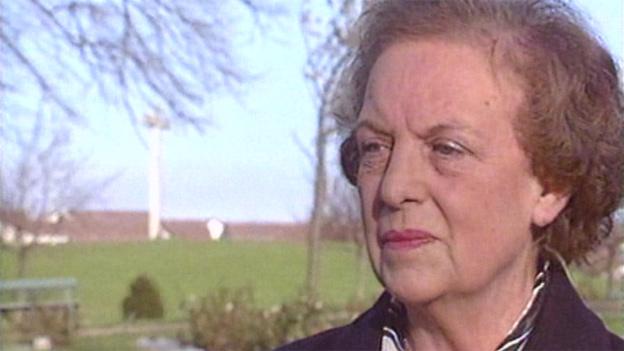World’s End murders: Angus Sinclair jailed for 37 years
- Published
The BBC's Lorna Gordon reports on the long road to bring Sinclair to justice
Serial killer and rapist Angus Sinclair has been jailed for a minimum of 37 years for the murders of two teenagers.
Sinclair raped and strangled 17-year-olds Helen Scott and Christine Eadie after a night out at the World's End pub on Edinburgh's Royal Mile in 1977.
The 69-year-old is the first person in Scotland to be retried for the same crime after an acquittal, following a change in the double jeopardy law.
Police believe he also killed at least six other women and girls.
The 37 year sentence - which comes 37 years after Sinclair murdered the two teenagers - is the longest ever handed out by a Scottish court, and means the killer would be aged 106 before he could apply for parole.

World's End guilty verdict
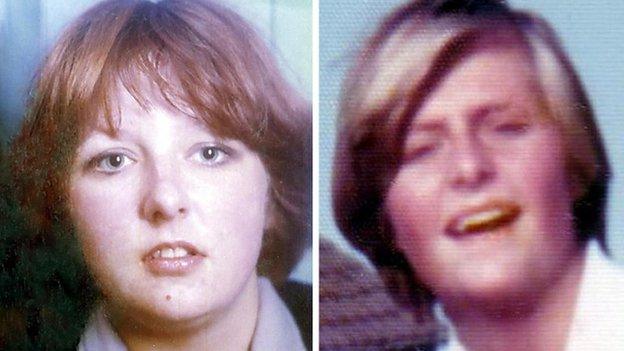
Christine Eadie and her friend Helen Scott were killed in October 1977
Angus Sinclair voluntarily gave a DNA sample to police in the mid-1990s - that led to convictions for the murders of three women two decades earlier.
The Sinclair trial was the first to be held in Scotland following the ending of the centuries-old double jeopardy rule.
For 37 years the families of Helen Scott and Christine Eadie have waited for justice for the teenagers who were murdered by Sinclair.
In his sentencing statement, Lord Matthews said Sinclair had shown no remorse
Find out more background to the case in a BBC Scotland investigations special. The World's End Murderer programme will be shown on BBC Two Scotland at 22:30 and on the BBC iPlayer.

Judge Lord Matthews told Sinclair: "You have displayed not one ounce of remorse for these terrible deeds. The evidence in this case as well as your record, details of which have now been revealed, shows that you are a dangerous predator, who is capable of sinking to the depths of depravity."
The judge said of Sinclair's two teenage victims: "Whatever dreams they had, they turned into nightmares shortly after they left the World's End Pub, the name of which has become synonymous with these notorious murders.
The judge in the World's End trial tells serial killer Angus Sinclair "you are a dangerous predator".
"Little were they to know that they had the misfortune to be in the company of two men for whom the words evil and monster seem inadequate."
The jury at the High Court in Livingston had taken just over two hours to conclude that Sinclair carried out the murders of Miss Scott and Miss Eadie with his late brother-in-law Gordon Hamilton, who died in 1996 without facing justice.
Speaking outside the court, Helen Scott's family said: "We finally have justice for Helen and Christine".
Helen's brother, Kevin Scott, said the 37-year minimum sentence was "appropriate" as it was 37 years since the murderers took place.
Mr Scott described his sister as a "country girl" with "beautiful blue eyes and a beautiful smile, never to forget".

Helen Scott's family welcomed the sentence
He said Christine Eadie was a "popular, friendly and likeable girl, who her family dearly-loved".
The teenagers were killed after they got into Sinclair's caravanette outside the city centre pub, where they had been drinking, on Saturday 15 October 1977.
They were found dead six miles apart in the East Lothian countryside the next day.
Miss Eadie's body had been dumped naked on the foreshore at Gosford Bay, while Miss Scott's was found at Coates Farm, naked from the waist down.
Both girls had been badly beaten, raped and throttled with their own underwear.
You are a dangerous predator and you have not displayed one ounce of remorse
Scotland's senior prosecutor, Lord Advocate Frank Mulholland QC, told the trial that the girls had suffered "terrifying, horrific and barbaric" deaths.
"Thankfully", said the lord advocate, "justice has no sell-by date in Scotland."
Helen Scott's parents had reported their daughter missing to the police when she did not come home from her night out with Christine, something that had never happened before.
They began to fear the worst when they heard on the radio that the bodies of two girls had been found near Aberlady and Haddington.
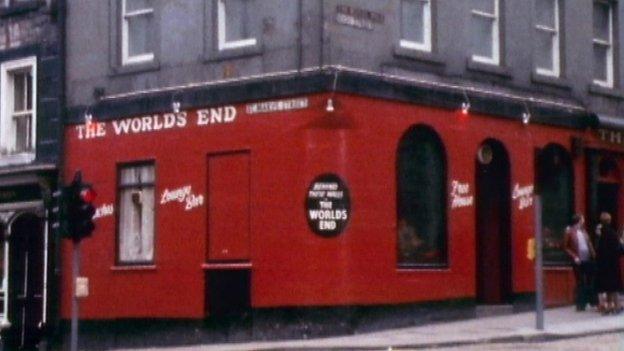
Christine and Helen were last seen in the World's End pub on Edinburgh's Royal Mile
Helen's father Morain Scott, who is now 84, said he had promised his wife Margaret on her deathbed in 1989 that he would secure justice for his daughter.
Mr Scott said he had thought about Helen every day since she died.
He said: "I wonder where she would have been today. Would she be married? Would she have children? Would I have grandchildren?
"They've stolen life from two youngsters who had their whole lives ahead of them."
Sinclair, who grew up in the St George's Cross area of Glasgow, has been in prison since 1982 and has a string of convictions for theft, rape and murder dating back to 1959.
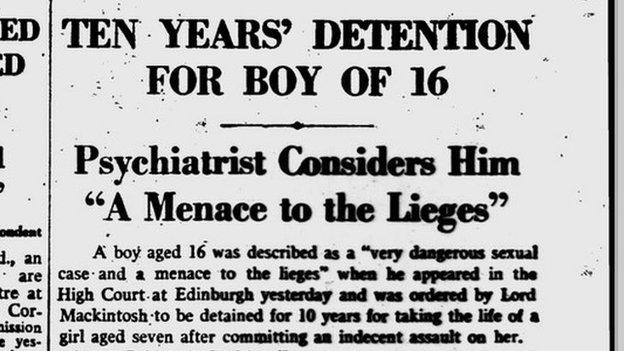
The Glasgow Herald reported Sinclair's first killing in 1961
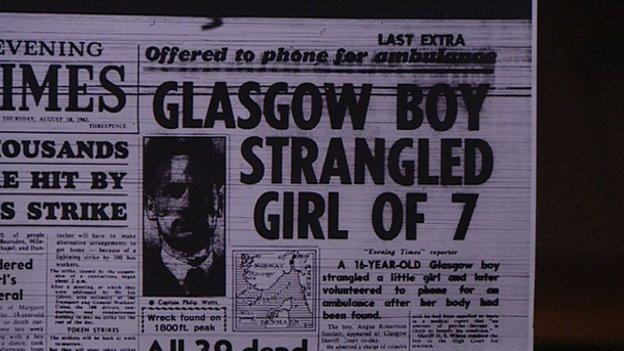
Sinclair was first convicted of killing in 1961
In 1961, at the age of 16, he admitted sexually assaulting and strangling Catherine Reehill, aged seven, in Glasgow and was sentenced to 10 years in prison for culpable homicide.
The judge who heard the case, Lord Mackintosh, said Sinclair was "callous, cunning and wicked" while a psychiatrist's report warned that he would remain a "very dangerous sexual case".
The warning was prescient.

Sinclair has been in prison since 1982
Sinclair served six years of his sentence before being set free to murder again and again.
Between June and December 1977 there is evidence that he went on a killing spree, murdering six women in just seven months, including Miss Scott and Miss Eadie.
His other suspected victims include Frances Barker, 37, Hilda McAuley, 36, Agnes Cooney, 23, and Anna Kenny, 20, all from Glasgow.
In November 1978 Sinclair struck again, strangling 17-year-old Mary Gallacher in Glasgow.
Over the next four years he raped and indecently assaulted 11 girls aged between six and 14 in the city.
In 1982 he was given a life sentence for the sexual offences but Sinclair was not convicted of murder until 2001 when a "cold case" review found DNA evidence linking him to the body of Miss Gallacher.
In 2004 three Scottish police forces came together to launch Operation Trinity, a review of the 1977 unsolved murders.
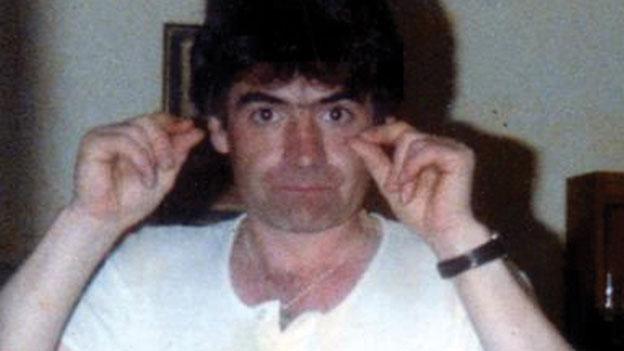
Sinclair's late brother-in-law Gordon Hamilton was involved in the World's End murders
The inquiry was led by the former deputy chief constable of Lothian and Borders Police, Tom Wood, who said there was a "pretty compelling" case that Angus Sinclair had killed many times.
Forensic scientists who examined six cases for Operation Trinity concluded that Sinclair had killed Helen Scott, Christine Eadie, Frances Barker, Hilda McAuley, Agnes Cooney and Anna Kenny.
Clear pattern
All the women were found in countryside having been bound and gagged. All had gone missing after a night out at a dance hall or a pub and all appeared to have died a violent death.

Angus Robertson Sinclair - a life of abuse, rape and murder
1959 - stole an offertory box from a Glasgow church, aged 13
1959 - housebreaking charge
1961 - committed lewd and libidinous practices on an eight-year-old girl. Sentenced to three years' probation
1961 - convicted of killing Catherine Reehill, aged seven. Sentenced to 10 years in prison. Serves six years
1970 - marries trainee nurse Sarah Hamilton (Gordon Hamilton's sister) and has a son two years later
1977 - thought to have murdered six women within seven months. Frances Barker, 37, Hilda McAuley, 36, Agnes Cooney, 23, and Anna Kenny, 20, all from Glasgow and Christine Eadie and Helen Scott from Edinburgh
1978 - murdered 17-year-old Mary Gallacher in Glasgow
1980 - illegal possession of a .22 calibre revolver
1982 - pleaded guilty to rape and sexual assault of 11 children aged six to 14. Sentenced to life in prison
2000 - cold case review of 1978 Mary Gallacher murder
2001 - convicted of the murder of Mary Gallacher
2007 - trial for murders of Christine Eadie and Helen Scott collapses
2014 - retrial finds Sinclair guilty of World's End murders

The scientists from the University of Glasgow examined more than 1,000 other murders in Scotland between 1968 and 2004 and concluded that the six crimes bore a "unique signature" and that "Angus Sinclair and Gordon Hamilton are responsible for all the linked crimes".
"The circumstances of their deaths and the methods used to bind, restrain and kill them, have striking similarities, findings not matched in any other group, or indeed in any other individual" their report stated.
"There was a clear pattern" said Mr Wood.
"They were all young women who had been out for the night, they had all disappeared off the streets, they had all been transported a distance, they had all been bound in exactly the same way, or very similar ways, they had all been assaulted and murdered in very, very similar ways."
Despite those apparent similarities, prosecutors decided there was not enough evidence to charge Sinclair with the Glasgow killings.
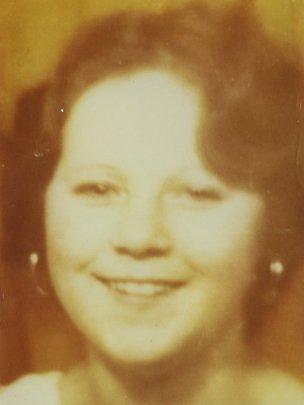
Sinclair raped and murdered Mary Gallacher in 1978
Forensic science evidence which might have enabled them to build a case had been lost or destroyed while in the case of Ms Barker, a man was already serving a life sentence for her murder.
Thomas Ross Young died in July 2014 at the age of 79 having failed to overturn his conviction on appeal.
New evidence
In Edinburgh, by contrast, scientists working with the police had the "presence of mind" to preserve evidence in the hope that advances in science would one day "come to the rescue" and secure justice, said retired Det Supt Allan Jones who investigated the World's End murders.
Sinclair was charged and went on trial at the High Court in Edinburgh in 2007 but the case collapsed in controversial circumstances.
After hearings lasting just two weeks, the judge ruled that there was no case to answer.
The prosecutor was criticised for failing to put potentially crucial DNA evidence, suggesting that Sinclair had tied the knots on the ligatures used to bind and strangle the girls, before the jury,
The serial killer was only brought to justice after the law on double jeopardy was changed to allow retrials in certain circumstances when new evidence was discovered.
BBC Scotland Investigates: The World's End Murderer will be shown on BBC Two Scotland at 22:30
- Published14 November 2014
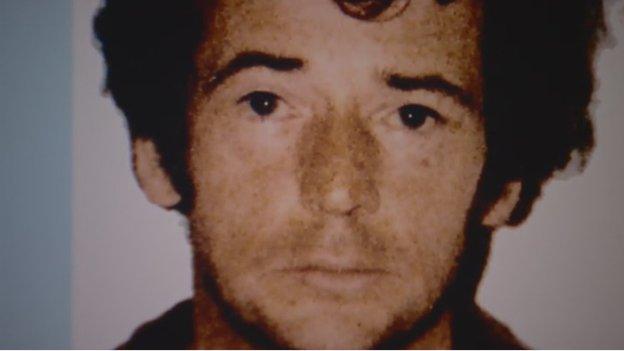
- Published14 November 2014
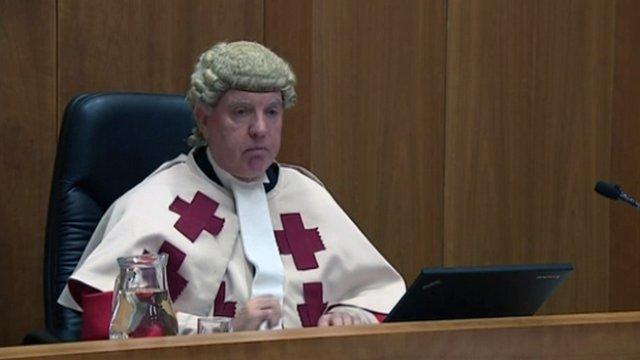
- Published14 November 2014
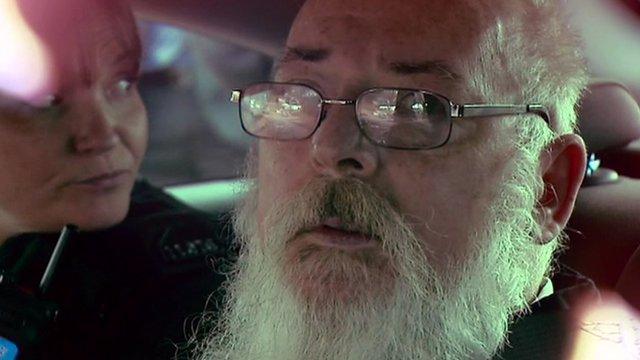
- Published14 November 2014
.jpg)
- Published18 November 2014
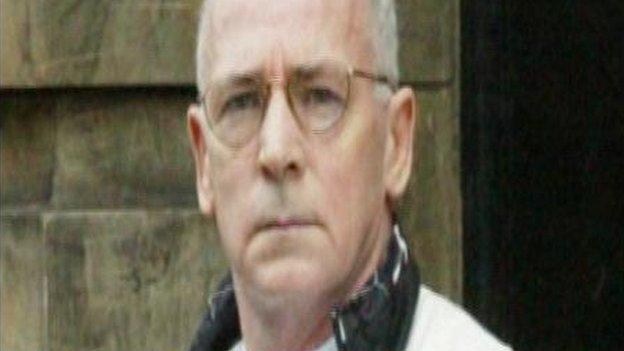
- Published14 November 2014
